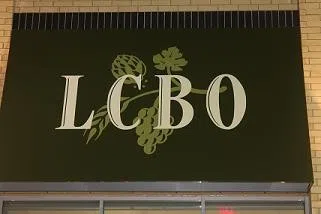Workers at Ontario’s primary liquor retailer are one step closer to a potential strike after union members voted overwhelmingly in favour of a mandate to walk off the job.
The Ontario Public Service Employees Union said Saturday that 97 per cent of participating LCBO workers voted in favour of a strike. It said 8,060 LCBO employees took part, marking a record 86-per-cent member turnout during the four-day vote.
“This record turnout will send a strong message to (Premier) Doug Ford and the LCBO that we aren’t backing down in this fight,” the union said in a news release.
“We’re fighting for a strong future for the LCBO.”
In response to the strike vote, the LCBO said it is putting measures in place to prepare for the possible work stoppage in case it doesn’t reach a deal with the union.
It said its plan will ensure continued customer service during a potential strike.
“LCBO does not want a strike,” it said in an unattributed statement posted to its website
“We have several bargaining dates this week where we will resume negotiations with a focus on achieving a renewal collective agreement with OPSEU that is fair for our unionized employees and helps the LCBO operate efficiently and effectively for Ontarians in a changing marketplace.”
OPSEU said its bargaining team would be back at the table this week to reinforce its key demands, noting members will learn more details of a potential strike timeline on Monday evening.
The union delivered a notice to bargain in January ahead of the March 31 expiration of its collective agreement with the LCBO.
The Ontario government has recently expanded rules surrounding the private sale of alcohol in the province through a phased approach.
In May, Ford announced that licensed grocery stores that currently sell beer, cider and wine would be able to also sell ready-to-drink cocktails and large-pack sizes as of Aug. 1.
After Sept. 5, eligible convenience stores will be able to sell beer, cider, wine and ready-to-drink cocktails, and after Oct. 31, all grocery stores and big box stores could sell those products, including large-pack sizes.
Over time, the changes will add up to 8,500 new places where people in Ontario could buy alcohol.
OPSEU held a “day of action” earlier this year opposing the government’s approach, saying workers “know exactly how the Ford government is selling off the work of the LCBO to private warehouses (and) off-site companies.”
“We’re proud that LCBO revenues contribute $2.5 billion every year into the public services we all rely on, like health care and education,” said OPSEU bargaining team chair Colleen MacLeod in a March statement.
“We’re not going to stand by while Doug Ford puts that money into the pockets of big box grocery store CEOs. We’re going to fight him every step of the way.”
(The Canadian Press)
